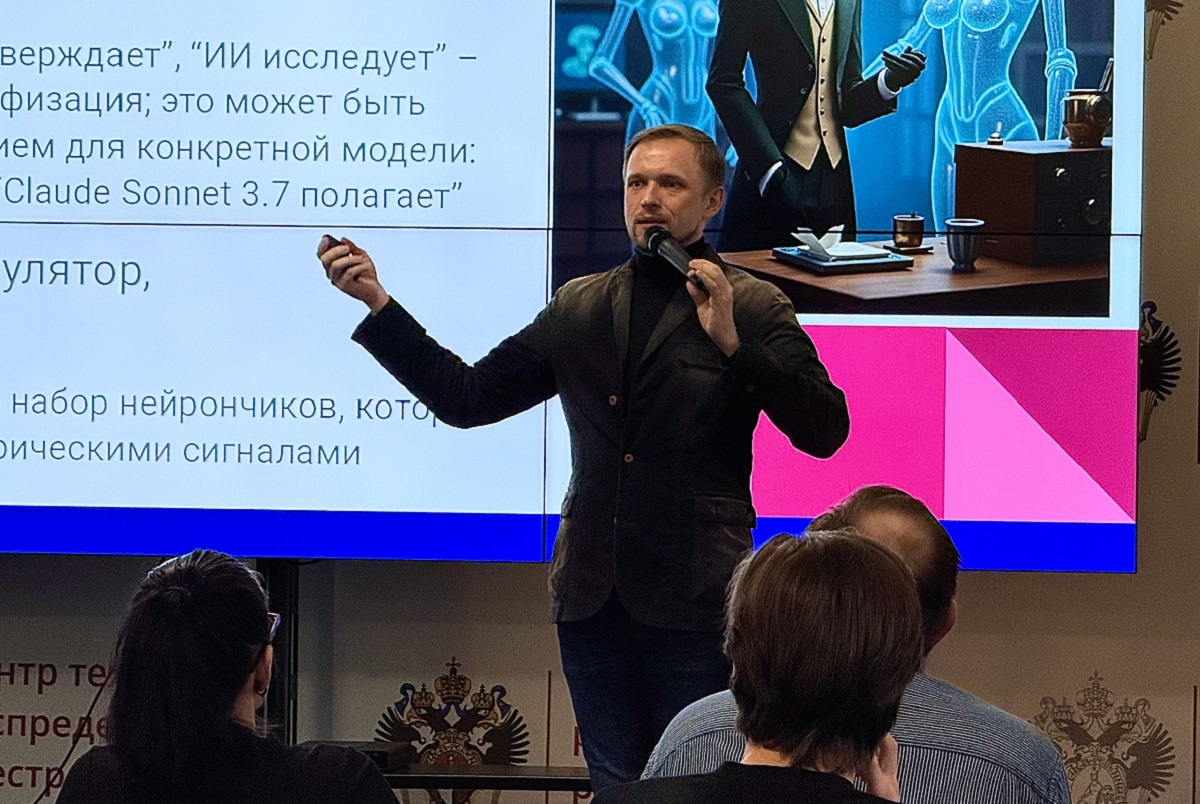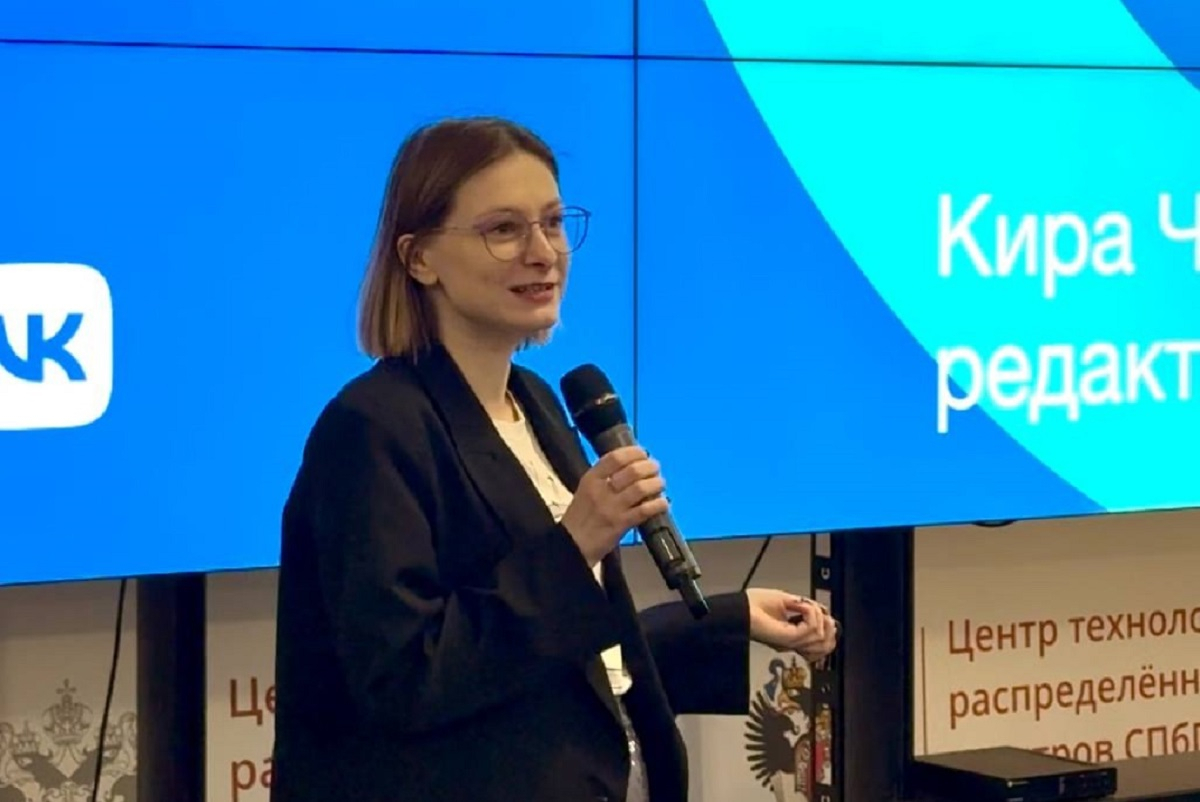St Petersburg University discusses how to make AI accessible for people to understand
The Centre for Artificial Intelligence and Data Science at St Petersburg University has held a meeting on how to popularise adaptive technologies. It brought together leading experts in AI, cognitive psychology, media communications, and public relations to discuss effective approaches to presenting complex artificial intelligence concepts to a wide audience.
Opening the discussion, Sergey Nikolenko, Associate Professor of St Petersburg University, Head of the Artificial Intelligence Laboratory at the St Petersburg Branch of the V.A. Steklov Institute of Mathematics of the Russian Academy of Sciences, particularly focused on the ambiguity of the term. The concept of "artificial intelligence" covers several aspects, e.g. scientific discipline, research goals and the final product, which presupposes different interpretations and therefore leads to cognitive confusion, he said.
While there are many models of artificial intelligence, there is no single strong or general intelligence AGI that we could simply label as AI.
Sergey Nikolenko, Associate Professor of St Petersburg University, Head of the Artificial Intelligence Laboratory at the St Petersburg Branch of the V.A. Steklov Institute of Mathematics of the Russian Academy of Sciences
"It is impossible to change the name. Yet, a clear distinction between the concepts when communicating with a mass audience will help to avoid misunderstandings," said Sergey Nikolenko. What is also important is not only to explain the current scientific achievements in the field of artificial intelligence, but also to identify potential development risks.

The expert at the AI Centre at St Petersburg University drew attention to recurrent errors in the use of the term in Russian-language media. According to Sergey Nikolenko, Associate Professor of the University, such inaccuracies form a distorted idea of the concept of artificial intelligence and its capabilities. Among the key errors, according to Sergey Nikolenko, are the following: anthropomorphisation, which endows the machine with human qualities; the presentation of AI as a simple computing tool; speculative statements about the replacement of human labour with artificial intelligence; and excessive simplification of complex scientific concepts.
"It is important to pay particular attention to the role of a developer in creating and training models. Use precise terms, talk about specific technologies, specific models. It is necessary to take into account the limitations of technologies, focusing not only on the potential, but also on current capabilities," Sergey Nikolenko said. Unlike other scientific disciplines, this scientific field can explain basic principles even without going into mathematical details, the expert added. The commitment to ensuring this approach to understanding AI among a wide audience is a priority.
In December 2023, St Petersburg University won the Russia-wide contest to receive state support for the development of an industry research centre in the field of AI. Among the current areas of work of the Centre for Artificial Intelligence and Data Science at St Petersburg University is the project of a designer of solutions for embedded artificial intelligence, a platform for strong AI of the Internet of Things. The Centre is actively working in various areas, demonstrating a wide range of developments in the field of artificial intelligence. Among the latest achievements are the StudyFair service, aimed at maintaining a transparent system for solving student assignments in programming, and a multimodal system for monitoring compliance with regulations, designed to ensure labour safety and control over the performance of employees in industrial enterprises.
Along with the growth of artificial intelligence capabilities, interest in its application in the professional sphere, in particular in the field of media communications, is also on the rise. Kira Churakova, Editor of Hi‑Tech Mail (VKontakte), shared her experience of using AI tools to generate popular science content aimed at covering high technology issues. In the current conditions, the main thing is not the method of creating materials, but their substantive value, she said. "The audience is equally involved if the content is interesting. They will read what has meaning. Even if this meaning is generated," the expert said.

Kira Churakova also spoke about the change in the structure of professional roles in the media. In particular, she focused on a trend towards an increase in demand for editors compared to authors, due to the processes of content production automation. "We use every opportunity to simplify processes and reduce the time it takes to complete tasks. There have been changes in our structure. Previously, we had two full-time news writers, now they perform the functions of editors. At the same time, their salaries have been increased," said Kira Churakova.
The moderator of the meeting "Tell me about AI" was Kamilla Nigmatullina, Head of the Department of Digital Media Communications at the Graduate School of Journalism and Mass Communication at St Petersburg University, and an expert at the Centre for Artificial Intelligence and Data Science at St Petersburg University.
Considering the possibilities of artificial intelligence in the field of humanities, Mariia Razygrina, a lecturer at the Moscow Institute of Physics and Technology, identified a promising direction, i.e. recognising a person’s emotional state using AI technologies. "In psychology, there are four basic emotional states: joy, sadness, surprise, and fear. In addition, there are more complex emotional manifestations, such as excitement, boredom, and confusion. Using various extracted features, current models are able to classify data in order to determine the user’s emotional state," the expert explained.
For the successful implementation of machine technologies, it is not enough to develop effective algorithms and it is also necessary to understand how they correspond to market demands and key interests of the target audience, said Polina Konorova, an independent PR consultant in IT and Head of PR at Just AI. Analysing the current state of the artificial intelligence technology industry, the speaker talked about the high competition for the audience’s attention in the context of oversaturation of the information field with similar content. In this regard, she proposed developing communication strategies aimed at creating unique and high-quality content.
The expert emphasised the need to bridge the gap between theoretical developments and the real use of AI, suggesting to shift the focus towards specific cases and measurable results. In this case, the journalistic community should pay priority attention to the practical application of artificial intelligence in the B2B sector and the economic efficiency of implementing these technologies. "There are no fewer topics, but they are becoming more complex. Artificial intelligence has become a tool that countries use in their development strategies, legislation is changing, giant companies are racing, and so on. It is much more difficult to discuss this without being constantly involved in the topic," concluded Polina Konorova.

